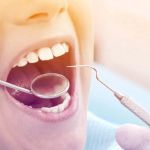Common Tooth Diseases and Their Characteristics
Tooth diseases are a significant concern affecting people of all ages. One of the most prevalent is tooth decay, which can occur at any age and is often caused by poor oral hygiene and excessive sugar consumption. Another common issue is gum disease, which starts as gingivitis and can progress to periodontitis if left untreated. Chipped teeth, teeth grinding, and abscesses are also frequent problems that can cause discomfort and potential long-term damage.
Causes and Risk Factors
Several factors contribute to the development of common tooth diseases. Poor diet, especially a high intake of sugary and acidic foods, plays a major role. Smoking, excessive alcohol consumption, and stress can also increase the risk. Genetic predisposition and underlying health conditions such as diabetes can make individuals more susceptible to oral problems. Additionally, not maintaining proper oral hygiene, including regular brushing, flossing, and dental visits, is a significant contributor.
Symptoms and Diagnosis
The symptoms of tooth diseases vary depending on the specific condition. Tooth decay may present as pain, sensitivity to hot or cold, or a visible cavity. Gum disease can manifest as swollen, bleeding gums, bad breath, or loose teeth. Chipped teeth may cause rough edges or pain, while teeth grinding can lead to jaw pain and worn tooth surfaces. Dentists typically diagnose these conditions through visual examinations, X-rays, and patient-reported symptoms.
Treatment Options
Treatment for common tooth diseases depends on the severity and type of the problem. Minor cavities may be filled, while more extensive decay might require crowns or root canals. Gum disease can be treated with professional cleanings, scaling and root planing, and in some cases, surgery. Chipped teeth can be repaired with fillings, veneers, or crowns. For teeth grinding, a mouthguard is often prescribed to protect the teeth. In cases of severe tooth damage or infection, extraction may be necessary.
Prevention and Oral Hygiene
Preventing common tooth diseases is crucial. Maintaining a balanced diet, limiting sugar intake, and avoiding tobacco and excessive alcohol are important steps. Brushing teeth at least twice a day with fluoride toothpaste, flossing daily, and using mouthwash can help remove plaque and bacteria. Regular dental check-ups and cleanings are essential for early detection and treatment of any developing issues.
Impact on Overall Health
Common tooth diseases not only affect oral health but can also have implications for overall well-being. Poor oral health has been linked to conditions such as heart disease, diabetes complications, and respiratory problems. It is essential to recognize the importance of oral hygiene and seek timely treatment to prevent these potential systemic effects.
In conclusion, common tooth diseases are widespread but largely preventable. By understanding the causes, symptoms, and available treatments, and by maintaining good oral hygiene practices, you can significantly reduce the risk of developing these problems and enjoy a healthy, beautiful smile throughout your life. Regular interaction with your dentist and a commitment to oral health are key to keeping your teeth and gums in top condition.






 Growing Smiles Pediatric Dentistry - Garner Station5.0 (15 review)
Growing Smiles Pediatric Dentistry - Garner Station5.0 (15 review) Cary Dental Rejuvenation4.0 (473 review)
Cary Dental Rejuvenation4.0 (473 review) Leardi Family Dentistry4.0 (135 review)
Leardi Family Dentistry4.0 (135 review) Pediatric Dental Associates of Northeast Philadelphia4.0 (2351 review)
Pediatric Dental Associates of Northeast Philadelphia4.0 (2351 review) The Orthodontic Studio5.0 (72 review)
The Orthodontic Studio5.0 (72 review) Dr. Hamish Carpenter, DDS5.0 (3 review)
Dr. Hamish Carpenter, DDS5.0 (3 review) The Importance of Oral Health Education During Pregnancy for a Healthy Pregnancy
The Importance of Oral Health Education During Pregnancy for a Healthy Pregnancy Best Tips for Brushing Your Teeth Properly for Healthy Gums: Essential Techniques for Oral Health
Best Tips for Brushing Your Teeth Properly for Healthy Gums: Essential Techniques for Oral Health Why Skipping Dental Checkups Can Lead to Bigger Oral Health Problems
Why Skipping Dental Checkups Can Lead to Bigger Oral Health Problems Advantages of Porcelain Dental Restorations
Advantages of Porcelain Dental Restorations How Can Diabetes Cause Tooth and Gum Problems? Preventing and Managing Oral Health Issues
How Can Diabetes Cause Tooth and Gum Problems? Preventing and Managing Oral Health Issues Healthy Habits for Promoting Good Oral Health and Hygiene: Tips for a Healthy Smile
Healthy Habits for Promoting Good Oral Health and Hygiene: Tips for a Healthy Smile